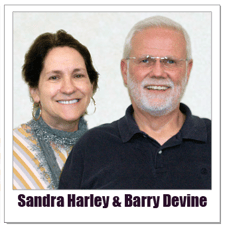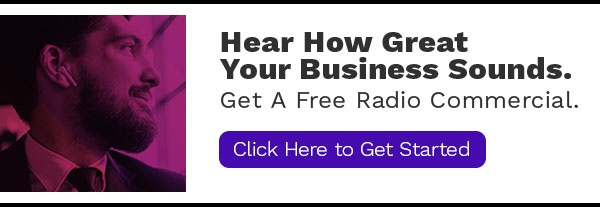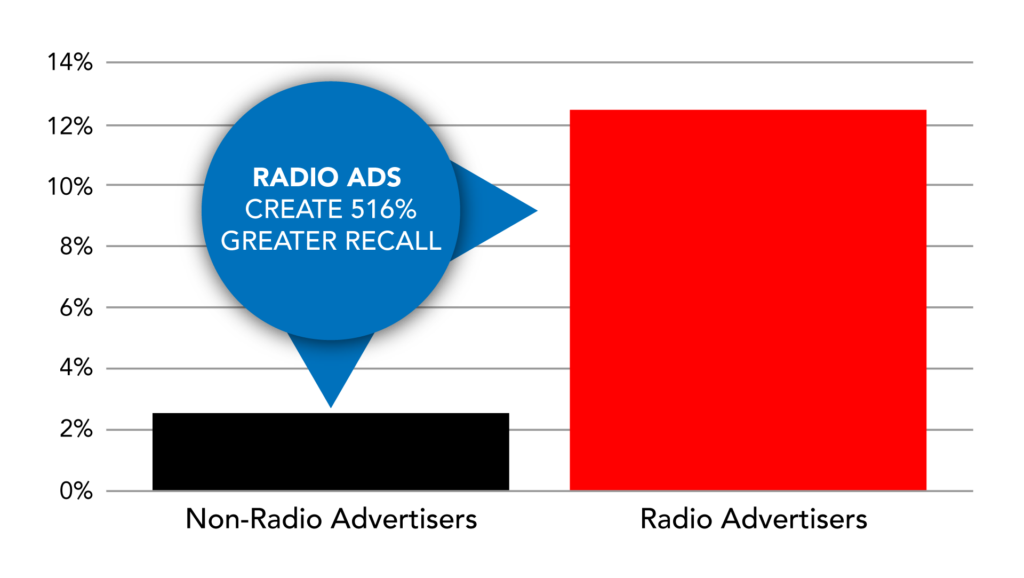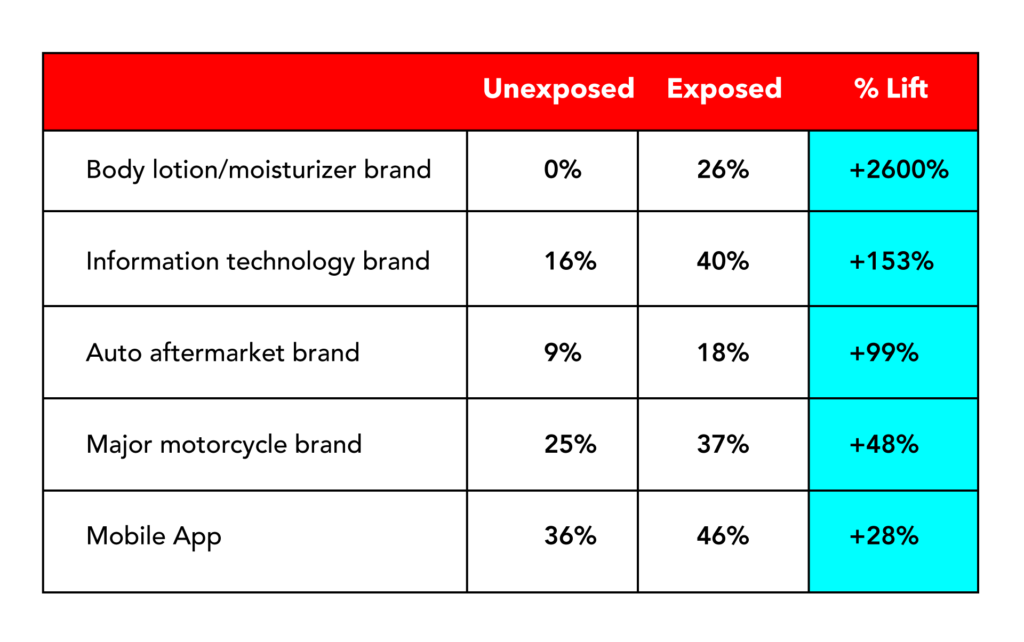 The ten most memorable brands in America have something in common. They each advertise on Tampa radio stations.
The ten most memorable brands in America have something in common. They each advertise on Tampa radio stations.
According to the YouGov Brand Index, the brands whose commercials generate the highest awareness are Geico, McDonald's, Verizon, AT&T, Walmart, Subway, Direct TV, T-Mobile, Progressive, and Walgreen’s.
If you were one of the 2,193,604 people who tuned into a Tampa Bay radio station last week, then chances are you heard the ads for these brands. All ten are among the biggest users of radio advertising.
Here's what Tampa Bay business owners need to know about creating a memorable brand for their own companies using Tampa radio stations.
What is Branding
So, what is branding and why is it necessary for every business owner in Tampa Bay to be concerned about it?
Seth Godin, who was inducted into the Direct Marketing Hall of Fame for making Yahoo! a household name defines banding in these terms: "A brand is the set of expectations, memories, stories and relationships that, taken together, account for a consumer’s decision to choose one product or service over another. If the consumer (whether it’s a business, a buyer, a voter or a donor) doesn’t pay a premium, make a selection or spread the word, then no brand value exists for that consumer.”
For branding to translate into a sale, consumers must be able to recall a brand’s promised benefits at the point of purchase. It makes sense: you don’t buy what you don’t remember.
For decades small business owners have used radio advertising on Tampa radio as a potent, yet affordable way, to keep their brands top of mind.
Radio Ads Keep Brands Top Of Mind
Local Ad Recall, a research company that measures the effectiveness of advertising, found that brand recall was five times higher for companies that advertised on radio versus the companies that did not. Consequently, Tampa Bay small business owners who advertise on radio have a much better chance of being recalled and, therefore, frequented by prospective customers than companies that do not advertise on radio.
Consumer insight company, Nielsen found similar results. Across several different business categories, on average, radio advertising improved recall by 82%. The businesses measured were a health and beauty company; an information technologies company; an auto aftermarket retailer; a motorcycle company; and a mobile app company.
Tips To Create A Memorable Radio Commercial
There is no single formula for creating effective ads for Tampa radio stations. What follows, though, are 11 proven guidelines to assist in the creation of an effective radio commercial.
- Start strong… a listener’s attention needs to be engaged within the first 3 or 4 seconds of a commercial.
- Be concise… use only words and sounds that link to the marketing objective. Extraneous words or too many selling points will cause a listener to disengage.
- Be consistent… use the same voices, music, and sounds to establish an audio identity across commercial campaigns. This can trigger instant brand recall.
- Be repetitive… the name of the advertiser should be repeated often to allow for an ebb-and-flow of a listener’s attention.
- Add surprise… a listener’s attention is drawn to the unexpected. This can be achieved by using multiple voices, interesting word choices, avoiding clichés, and changing the speaker’s tones and volume.
- Tell a story… listeners are hardwired to emotionally respond to features and benefits when presented in story-form rather than as a list. The advertiser should be the hero of the story.
- Write for the ear… radio commercials should sound like the way we speak, not the way we write. Humans don’t apply the same set of rules to speech that they do to written communication. When speaking, we often use broken sentences, non-sequiturs, and awkward phrasing. A listener’s attention is more likely to be drawn to this type of natural speech.
- Talk… listeners prefer to be “talked with” not “announced at”. Stereotypical radio voices should be replaced with the same tones and manner used to talk with friends.
- Use humor cautiously… humor is a good way to command attention but can be difficult to execute well. Be certain that the humor in a radio commercial will resonate positively with the target consumer.
- Finish strong… not every listener will engage with a commercial at the same time. So, it is critical to finish by reinforcing the key points presented throughout. This includes restating the advertiser name and the key marketing message.
- Expand… there is no reason an advertising campaign can’t use multiple commercials. In fact, it is encouraged as long as the first ten guidelines on this list are adhered to…especially #3.
Memorable Commercials On Tampa Radio Stations
 "Radio advertising is a huge part of our success," says Trent Taucher. His family has owned Budget Heating and Air Conditioning since 1992. "The constant repetition of our unique message on Tampa radio stations drives new customers through a door every day."
"Radio advertising is a huge part of our success," says Trent Taucher. His family has owned Budget Heating and Air Conditioning since 1992. "The constant repetition of our unique message on Tampa radio stations drives new customers through a door every day."
The company began advertising in the year 2000 when the company transitioned from typical sales and installation company to just selling air-conditioning units from its warehouse directly to consumers and contractors.
"The success of our new business model depended largely on word-of-mouth. We quickly generated plenty of it with radio advertising," says Mr. Taucher. "We used our radio advertising to tell customers how to find us and how much money they would save buying direct from us. Every day, someone would say they would have never known we were here."
One day, in 2010 the company discontinued its radio advertising. "We didn't have, at the time, a way to track our return-on-investment from our ads," says Mr. Taucher. "That's about the time we started investing in pay-per-click advertising online. With PPC we could link our advertising costs to sales."
The negative effect of pulling out of radio was quickly apparent. "Almost immediately," says Mr. Taucher, "we watched as our store traffic diminished. When we stopped advertising on Tampa radio, we really lost an important part. of our business."
Advertising on Tampa Radio Stations Has Top of Mind Value
That's when the company discovered the residual value of radio advertising. "Months after we stopped advertising on Tampa Bay radio, customers would still come in and say they knew about Budget Heating from the radio," says Mr. Taucher. "We had never considered top-of-mind value as part of our ROI calculations."
In 2017, Tampa radio made its way back into Budget Heating's advertising budget. "We started with a schedule on Spanish radio, says Mr. Taucher, "to expand our awareness among Tampa's growing Hispanic community."
"After about three months of radio advertising, our store traffic shot-up," says Mr. Taucher. "That's when the ads really started paying for themselves. So much so, that in 2018 we increased the number of radio stations we advertise on."
Tampa radio and PPC now comprise the majority of Budget Heating's advertising expenditures. "We use PPC strictly for conversions," says Mr. Taucher. "Radio is about creating word of mouth and staying top of mind. Radio advertising is much more of a branding tool for us."
Memorable Advertising Drives Growth For Tampa Bay Business
 Hungry Howie's is the 12th largest chain of pizza restaurants in America based on sales volume. The company has 551 locations. Seventy-one of the stores are in the Tampa Bay area.
Hungry Howie's is the 12th largest chain of pizza restaurants in America based on sales volume. The company has 551 locations. Seventy-one of the stores are in the Tampa Bay area.
For the past 33 years, advertising on Tampa radio has helped Hungry Howie's grow from just 20 locations in the Tampa Bay area to 210 throughout the state.
"Our Florida locations outsell all of the other stores across the country," says Barry Devine, founder of Devine Advertising, a St. Petersburg based small business who has been responsible for Hungry Howie's marketing since 1986.
"The only thing we do differently here in Florida," says Mr. Devine, "is we use lots of radio advertising. Far more than the Hungry Howie's locations in other states."
The primary benefit advertising on Tampa Radio offers to Hungry Howie's marketing effort is repetition. "Radio provides us the affordable frequency we need to hit hungry consumers over the head enough times for our message to sink in," says Mr. Devine. "We want to be top of people's mind when they are driving home from work and don't feel like cooking."
"Occasionally," says Mr. Devine, "one of your store managers will tell me that we are wasting our money on radio advertising because no one listens anymore."
"When they tell me that I offer to give his store a radio campaign at no-charge to invite customers in for a free large pizza. In 33 years, no one has ever taken me up on that offer because, they know, the results would be overwhelming because radio advertising does work."







